AI in logistics and transportation: Use cases

Senior Product Marketing Manager
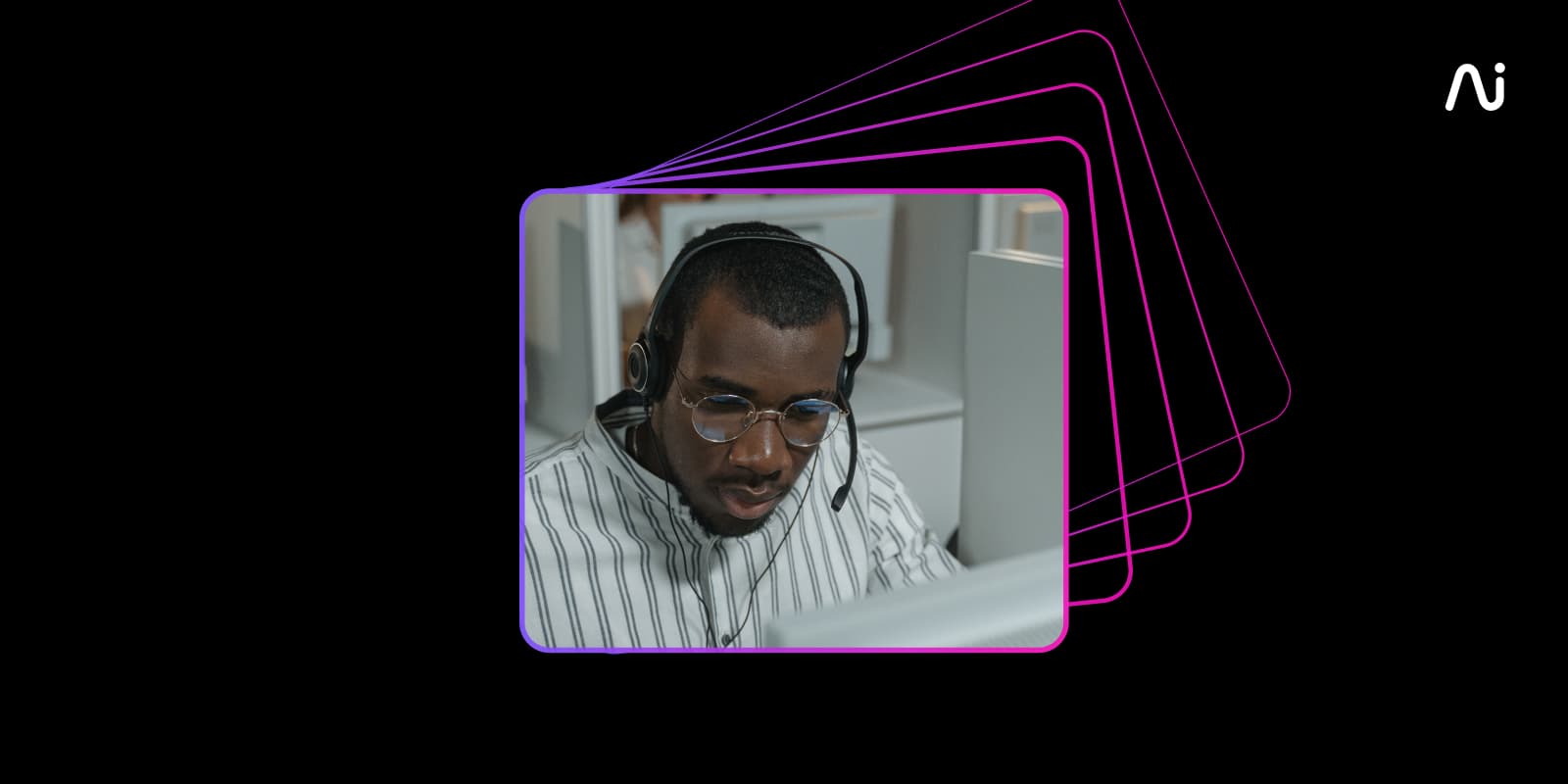
Tags
Share
Artificial intelligence (AI) has emerged as a transformative technology that has disrupted several industries—and transportation & logistics is no exception.
As one of the product managers here at Dialpad, this is an industry I’ve definitely seen a big increase in as far as AI adoption goes. And considering AI has helped businesses improve logistics costs by 15%, inventory levels by 35%, and service levels by 65% (according to McKinsey), it makes sense.
In this blog post, we’ll explore the role of AI in the transportation & logistics sector and provide some real-world examples of AI use cases.
Why transportation & logistics companies are turning to AI
I’ll let the numbers talk here.
I mentioned in the intro that McKinsey has found some impressive ROI numbers on AI for logistics. Another report by McKinsey estimates that logistics companies will generate $1.3 to $2 trillion per year for the next 20 years in economic value by adopting AI.
What’s more: 50% of global enterprises will invest in real-time transportation visibility solutions in 2023 (Gartner). And 82% of transportation & logistics companies believe that AI and machine learning (ML) will be important to their business in the next three years (American Transportation Research Institute).
It’s no wonder global players like FedEx, UPS, and DHL have already invested heavily in AI.
AI use cases in transportation & logistics
Below I’ve provided some real-world examples of use cases for AI in transportation & logistics.
Use case #1: Note-taking and call summaries
AI can improve overall productivity at your organization by taking care of note-taking during customer calls. Real-time transcription eliminates the need for agents to take notes during calls, so they can focus on the call itself. It also provides a written record of the conversation that they can refer back to for more contextualized follow-up interactions.
Here’s what that looks like with Dialpad Ai Meetings, for example:
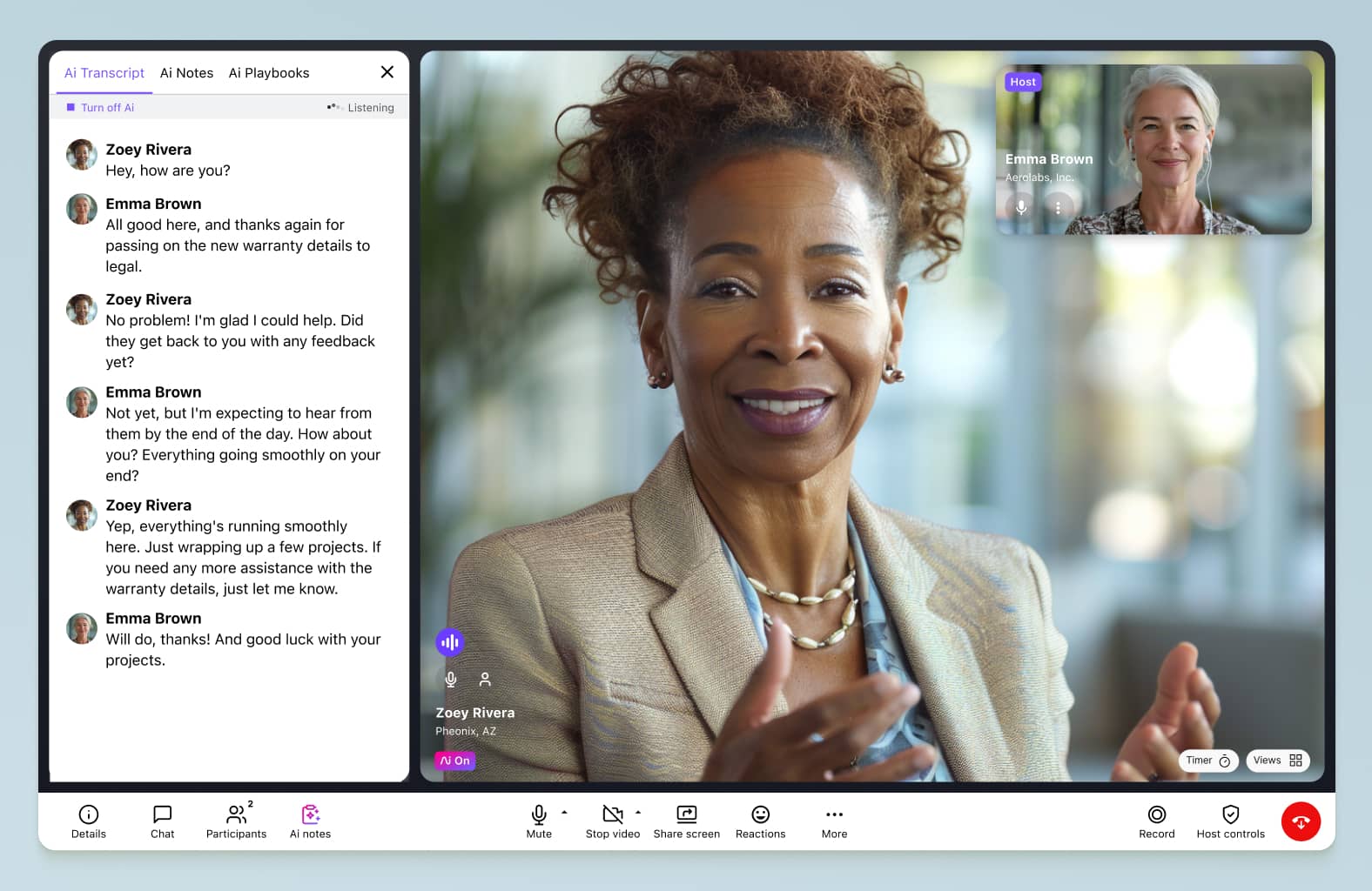
Fun fact:
Dialpad has amassed almost 4 billion minutes of transcription and voice, 5 billion Ai events categorized, and 145 million Ai recommendations.
After the call, Dialpad Ai will send the call summary with a searchable AI-generated transcript, the recording, and key highlights to attendees, which again automates some of the administrative follow-up work that would normally be required:
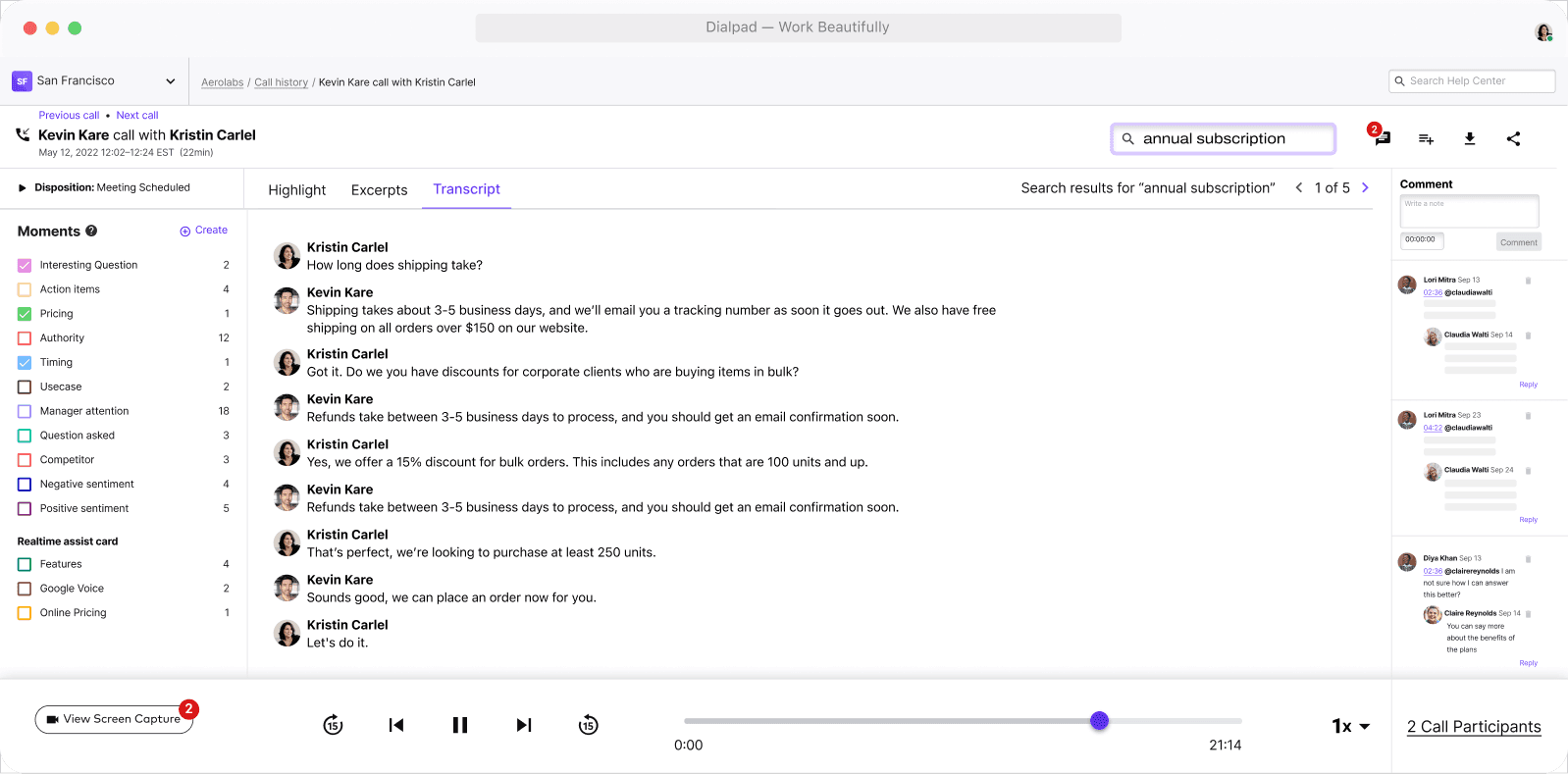
Oh—and an AI-generated recap of the whole conversation, automatically summarized into a few succinct sentences:
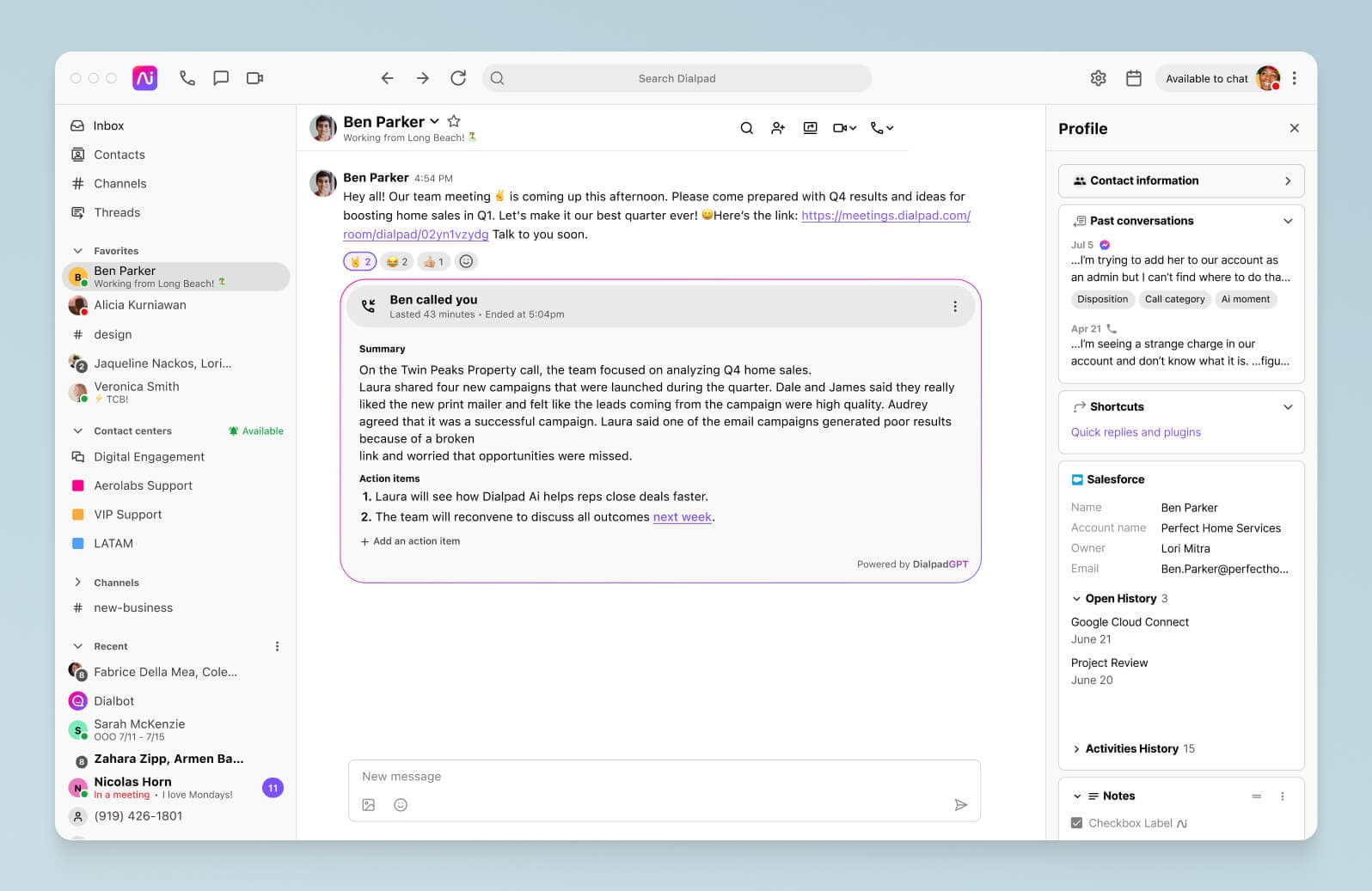
Case study:
TRAFFIX said Dialpad “was the most advanced phone system out of all the competitors.” Thanks to Ai-powered transcription, analytics, real-time agent assistance, and more.
Use case #2: Live sentiment analysis
AI can help you understand how customers or fleet teams are feeling and provide personalized recommendations. It does this through live sentiment analysis, which means it can instantly flag calls with negative sentiment to the supervisor, giving you a chance to listen in or barge the call to help turn the experience around.
Here’s what that looks like with Dialpad Ai:
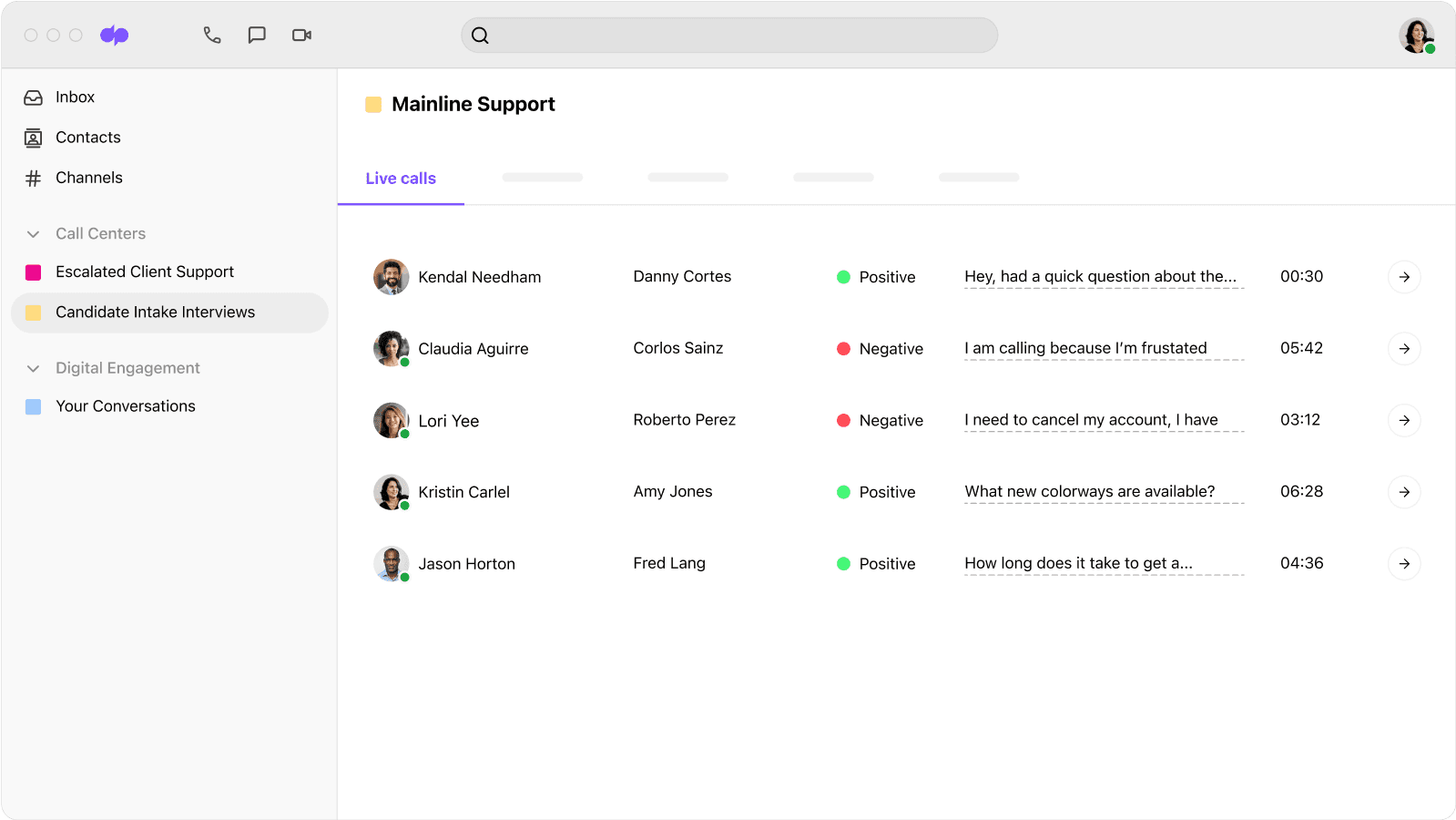
Case study:
Diapad keeps C.R. England's 120 fleets of drivers connected: “It’s been a mover for our company. The goals we’re setting and achieving as a company couldn’t have been done without our drivers participating on Dialpad. So it’s been a strong initiative and has been very successful.”
Use case #3: Real-time dispatcher / agent empowerment
AI tools can give agents instant access to insights into their customers’ needs and helpful information so they can tailor their responses and provide more effective solutions faster.
Fun fact:
According to the State of AI in Customer Service Report, agents using Dialpad Ai can handle, on average, twice as many calls as those who don’t.
Dialpad’s Ai Live Coach, for example, automatically searches all your connected knowledge sources (even unstructured ones like PDFs and past customer conversations) to find the information an agent needs, and pull it right onto the agent’s screen as they’re talking to the customer:
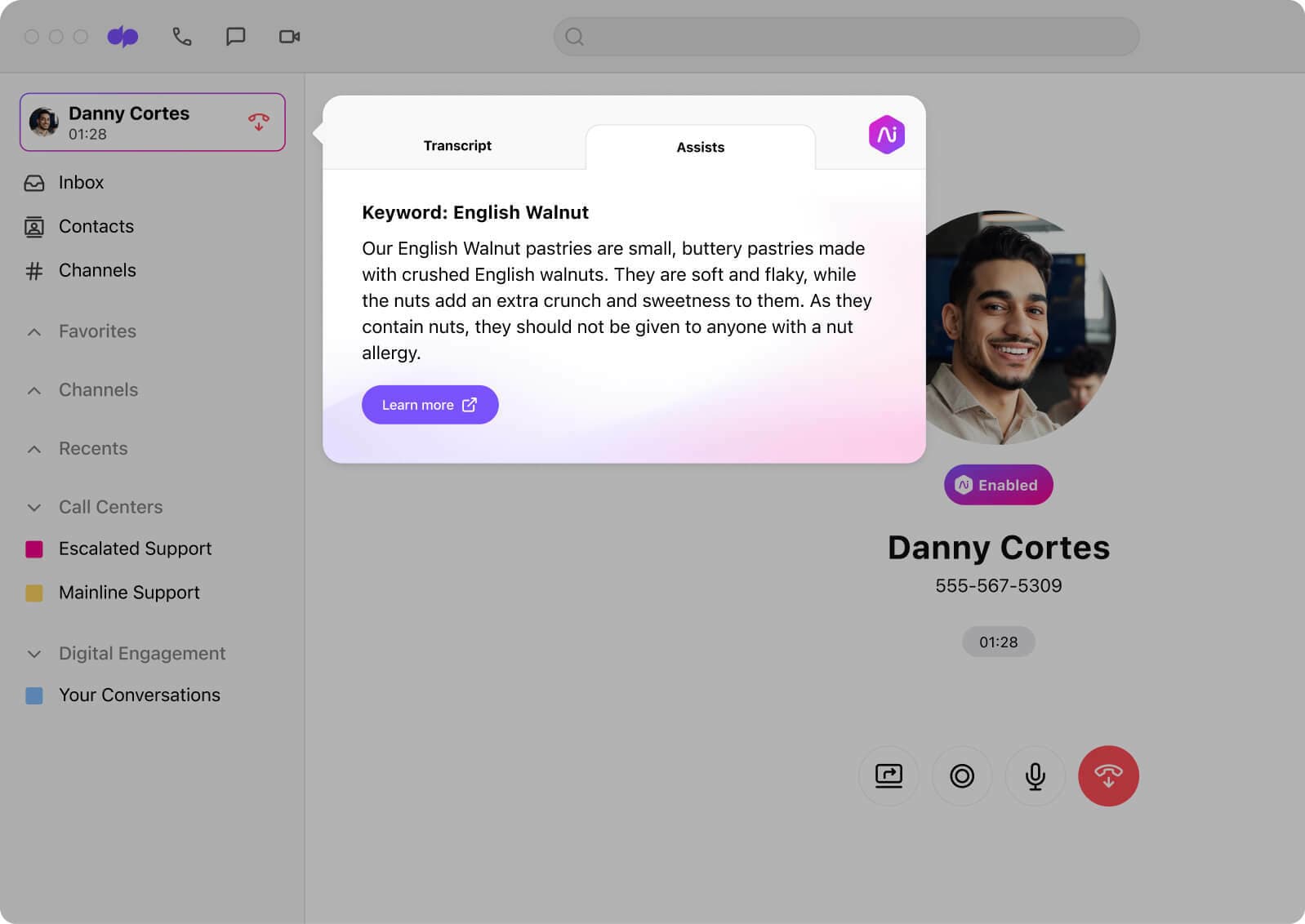
Case study:
Dialpad Ai gives ShipEx, a Truckload fleet, a competitive advantage (a few, actually) by enabling real-time transcription, sentiment analysis, feedback and coaching, risk management, and more.
Use case #4: Chatbots / conversational AI
According to PWC, 73% of consumers consider customer experience to be an important factor in their purchasing decisions. AI-powered chatbots and virtual assistants can help enable 24/7 customer support on your website and digital channels by handling customer inquiries, providing instant support, and offering personalized recommendations.
By using natural language processing and machine learning, these AI systems can understand and respond to customer queries in real-time, providing a seamless and efficient communication channel. This helps reduce response times, improve customer service, and ultimately increase customer satisfaction. (Not to mention the cost-savings from a staffing perspective.)
It’s not that hard to set up these flows either—you don’t need to know how to code, and it could just take a few minutes. In fact, here’s how conversational AI looks in Dialpad Support. It’s just a drag-and-drop builder, and anyone could do it:
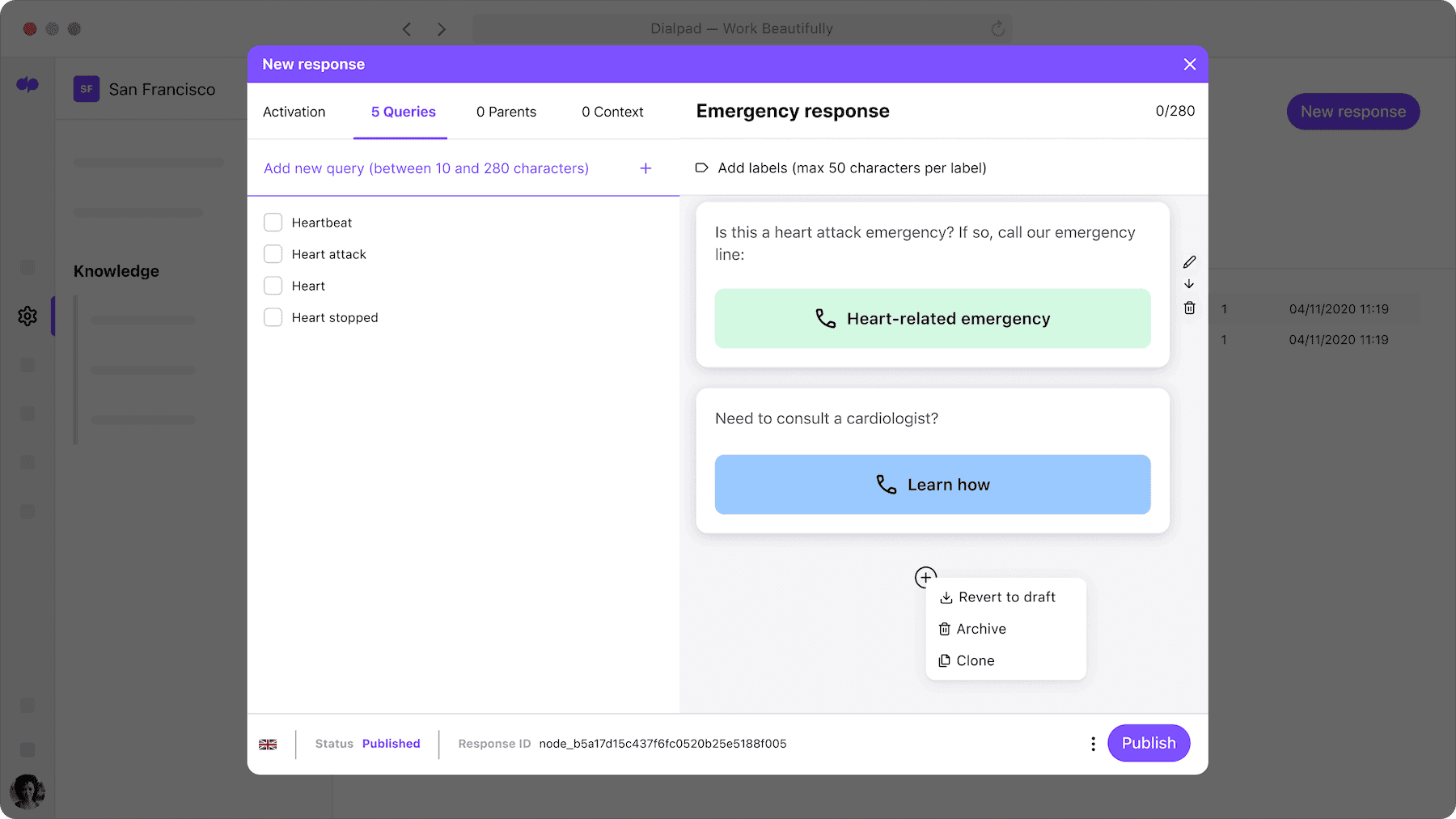
Real-world example:
BearingPoint and DHL joined forces to create "Marie," an innovative solution leveraging Salesforce Service Cloud and Einstein AI. By automating the resolution of customer requests received via chat, Marie provided a seamless experience for customers, while enabling agents to efficiently handle inquiries more effectively.
Use case #5: Demand forecasting
One of the key areas where AI is making a significant impact in logistics is demand forecasting. With the help of AI algorithms, logistics companies can analyze historical data to predict future demand for their services. This allows them to optimize their operations, reduce inventory costs, and ensure timely delivery of goods.
And we’re only just getting started. As AI continues to collect more and more data, it becomes more and more accurate. Soon, you’ll be able to use it to make strategic decisions about your logistics, like where to build a new warehouse or which delivery routes to take.
Real-world example:
UPS uses an AI-powered system called "ORION" (On-Road Integrated Optimization and Navigation) to optimize its delivery routes. By analyzing package weight, destinations, and delivery schedules, ORION intelligently determines the most efficient route for each driver. Since its launch in 2012, ORION has enabled UPS to save approximately 100 million miles and conserve 10 million gallons of gasoline each year.
Use case #6: Route optimization
Another area where AI is making a significant impact in logistics is route optimization. AI algorithms can analyze data on traffic patterns, road conditions, and delivery schedules to optimize the most efficient route for delivery drivers. This not only reduces fuel costs and carbon emissions but also ensures timely delivery of goods.
Real-world example:
DHL uses an AI-powered system called "Cubicycle" to optimize its delivery routes in city centers. Cubicycle uses data on traffic patterns, delivery locations, and weather conditions to optimize the most efficient route for its electric bikes.
Use case #7: Warehouse automation
AI is also being used to optimize warehouse operations. Logistics companies can analyze data on inventory levels, order volumes, and delivery schedules to optimize warehouse operations.
Real-world example:
Amazon uses an AI-powered system called "Kiva" to optimize its warehouse operations. Kiva uses robots to transport products to and from storage shelves, significantly reducing the time it takes to fulfill customer orders.
Use case #8: Predictive maintenance
Finally, AI is also being used to predict equipment failures and prevent downtime in the logistics sector. Logistics companies can analyze data on equipment performance, maintenance records, and environmental conditions to predict when equipment is likely to fail. This allows them to perform preventive maintenance before equipment failure occurs, reducing downtime.
Real-world example:
FedEx uses an AI-powered system called "SenseAware" to track and monitor the condition of packages in real-time. SenseAware uses sensors and AI algorithms to monitor temperature, humidity, and other environmental conditions, allowing FedEx to ensure that sensitive packages are delivered in optimal conditions.
The future of AI in transportation & logistics
AI is transforming the transportation & logistics sector by optimizing operations, reducing costs, and improving both customer and employee satisfaction. As AI technology continues to evolve, we can expect to see more innovative AI use cases for this fast-growing sector in the future.
Transportation & logistics companies love Dialpad Ai
See how transportation & logistics companies are using Dialpad Ai to optimize their operations, reduce inventory costs, and ensure timely delivery of goods. Book a chat with our team, or take a self-guided interactive tour!
